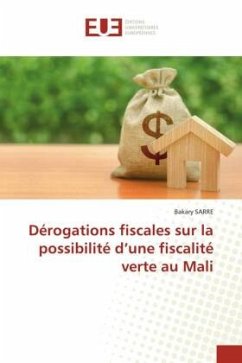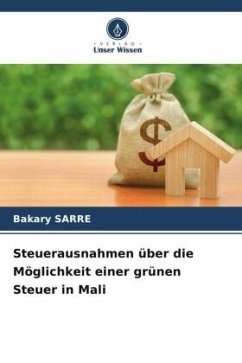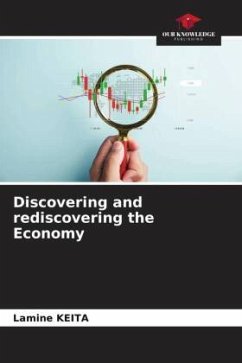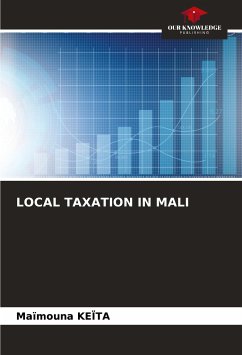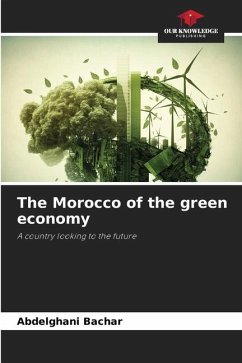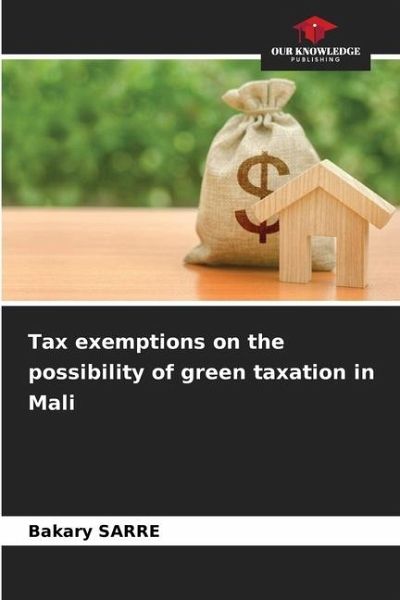
Tax exemptions on the possibility of green taxation in Mali
Versandkostenfrei!
Versandfertig in 6-10 Tagen
29,99 €
inkl. MwSt.

PAYBACK Punkte
15 °P sammeln!
The design of tax policies is dominated by the visions and political choices of each state, i.e. of political decision-makers.The aim of this study is to analyze the choices made by governments, which may decide to promote or discourage certain practices through tax exemptions. What are the strategies and measures to encourage the promotion of the agricultural, mining and industrial sectors?The initial hypothesis is that the Malian government has adopted texts derogating from the General Tax Code, through the Investment Code, the Mining Code and the Agricultural Orientation Law, to attract nat...
The design of tax policies is dominated by the visions and political choices of each state, i.e. of political decision-makers.The aim of this study is to analyze the choices made by governments, which may decide to promote or discourage certain practices through tax exemptions. What are the strategies and measures to encourage the promotion of the agricultural, mining and industrial sectors?The initial hypothesis is that the Malian government has adopted texts derogating from the General Tax Code, through the Investment Code, the Mining Code and the Agricultural Orientation Law, to attract national and international investors, ensure agricultural self-sufficiency and promote exploration and mining in Mali.In other words, it does not protect the interests of future generations, but rather favors the private pursuit of profit. And this state of affairs runs counter to the international principles governing green taxation.



